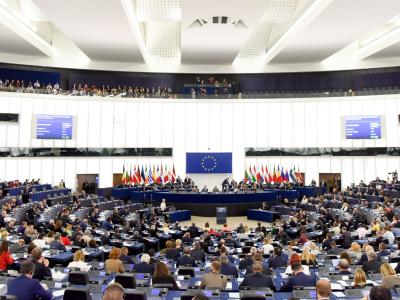
Implementing the Agenda for Change: An independent analysis of the 11th EDF programming
Effectively programming the European Development Fund (EDF) is a major political, policy and bureaucratic challenge, involving multiple stakeholders, namely the European Commission (EC), the European External Action Service (EEAS), 28 EU member states, the European Parliament, 74 governments from the Africa, Caribbean and Pacific (ACP) group of states and domestic accountability actors.
We also prepared a brief on the basis of this paper – available in English and French.
The EU is currently implementing its 11th European Development Fund for the period 2014-2020, with an aid budget of €30.5 billion for many of the ACP countries and Overseas Countries and Territories (OCTs), covering both national and regional programmes.
This Discussion Paper presents the key findings of ECDPM's independent analysis of the 11th EDF programming experience. Our study focuses on the programming of national funds directed at ACP countries. Our work is intended to inform both EU and ACP decision-makers about the implementation of the EU’s Development Policy - the Agenda for Change.
Key messages
- The 11th EDF programming exercise is a critical test of the ability of the EU’s external action structure and current development policy (the Agenda for Change) to achieve high impact aid. Moreover, the 11th EDF will unfold in a changed post-2015 context and its assessment will provide important lessons for future ACP-EU relationship beyond 2020.
- The EU has ensured the effective translation into practice of two key policy commitments, namely a more focused strategy for less developed countries (LDCs) and low-income countries (LICs), and the concentration of EU aid on a limited number of sectors and policy priorities. The high degree of compliance was achieved through top-level support and tight control from headquarters.
- In many countries, initial programming proposals based on in-country consultations were superseded by HQ choices. Although the 11th EDF is closely aligned with national development plans, there is evidence that a top-down approach to programming has led to a significant erosion of key aid and development effectiveness principles, in particular country ownership.
For those interested in development effectiveness and EU external action, understanding the magnitude of the 11th EDF programming challenge is critical for three reasons. First, the 11th EDF will unfold in a radically changed global context, marked by the beginning of a transition towards the Sustainable Development Goals (SDGs). Second, the 11th EDF is also the last EDF before the Cotonou Partnership Agreement (CPA) expires in 2020. Finally, the programming and implementation of the 11th EDF will be a critical test of the EU’s external action and the ability of EU development policy to achieve high-impact aid.




